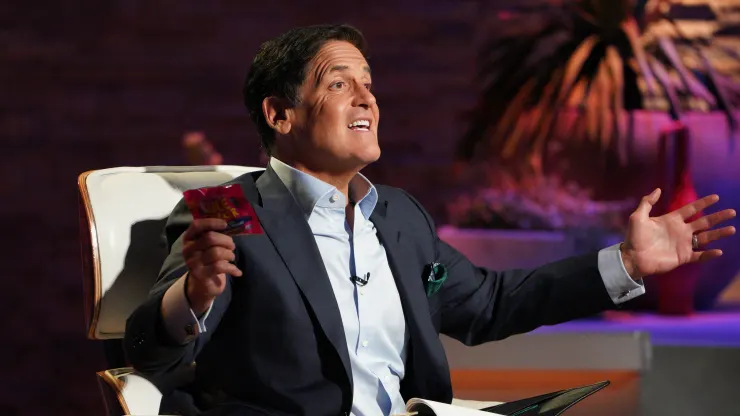
Billionaire entrepreneur Mark Cuban suggests you pay off all your credit cards — and then burn them.
“If you use credit cards, you don’t want to be rich,” Cuban said during an interview with personal finance radio personality Dave Ramsey on “The Ramsey Show.”
Cuban’s biggest issue with credit cards: high interest rates, he told Ramsey. The average interest rate for a credit card is around 16.65%, according to the Federal Reserve’s latest data, and some cards can have rates as high as 36%, according to WalletHub.
“Credit cards are not your friend,” Cuban tells CNBC Make It. “Debit cards are ok if there are not fees,” he adds.
Why Cuban hates credit cards
Although you can avoid high interest charges by paying off your credit card balance in full each month, that can be difficult for many people, Cuban says.
And unless you’re paying off the balance in full, interest continues to compound. Sometimes, the minimum payment is barely enough to cover interest charges, so if you’re only paying the minimum each month, you may only be chipping away at the interest rather than the account balance.
When you completely pay off a credit card with a 15% or 20% interest rate, you’ve freed up the money previously going toward interest to be spent or invested elsewhere, Cuban says.
What Cuban suggests instead of credit cards
Take out a personal loan as an alternative to using a credit card, Cuban proposes. A personal loan is a form of installment credit that must be paid back in regular increments over a set period of time.
The average annual percentage rate (APR) on a 24-month personal loan is around 8.73%, according to the Federal Reserve’s most recent data, but can also be as high as 36%, LendingTree reports. As with credit cards, the rate you qualify for depends on your credit score.
Cuban argues that if you’ve got a good credit score, getting a personal loan can allow you to get the money you need at a lower interest rate while still building your credit.
If you’re approved for a personal loan, you’ll typically receive a one-time cash payment that you pay back over a period of time with interest. Similar to credit cards, your credit score could take a hit if you miss a payment. Once you’ve used up all of the funds from your personal loan, you’ll need to apply for another one in order to receive more money.
Why some personal finance experts don’t agree
When used responsibly, credit cards can be a great tool for building credit. That’s key to qualifying for good rates on financial products like mortgages or car loans.
Credit cards can offer other perks, such as purchase protection when shopping online and rewards points.
Some personal finance experts also disagree with Cuban’s strategy of using personal loans in place of credit cards. Personal loans are better suited for a one-time necessary expense, such as replacing your roof or consolidating high-cost credit card debt, says Ted Rossman, senior industry analyst at Bankrate.com.
“I think it would be very dangerous to use a personal loan to finance a vacation or a boat or some other discretionary expense,” he says.
Additionally, using a personal loan to finance everyday expenses “feels like a systemic issue with no end in sight,” Rossman says.
“If your expenses are routinely outpacing your income, something has to give,” Rossman says. “You need to either find a way to earn more or spend less.”